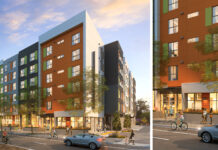SACRAMENTO, California: California Gov. Gavin Newsom has reached a deal with apartment owners and developers on legislation that would cap how rapidly rents can rise as the state grapples with a housing crisis. The deal would cap annual rent increases at 5 per cent plus inflation, with a 10 per cent maximum increase. That’s lower than the 7 per cent threshold lawmakers had previously negotiated amid strong resistance from the real estate and development industries. Staff members Newsom’s office shared details of the deal, which is not yet in print.
It marks a victory for renters who say they are being priced out as rents rise, though many renters and social justice groups likely want an even stricter proposal. Democratic Assemblyman David Chiu of San Francisco, the bill’s author, had made numerous concessions to the real estate and development industries to even get the bill to the state Senate.
While the new deal is in renters’ favor by lowering the allowable rent increase from 7 per cent to 5 per cent, it changes the exemption for newer properties from those built within the last 10 years to within the last 15. The rent caps would sunset in 2030. The cost of inflation would be determined on a regional basis, meaning it could be a different percentage in San Francisco than in the Central Valley. The proposal still needs to clear the state Legislature, which adjourns for the year in two weeks.
The California Apartment Association said it will not oppose the bill. “Now we must get serious about moving forward on production, which is the only way we address our housing crisis,” Debra Carlton, senior vice president for public affairs, said in an email.
The California Building Industry Association is also neutral on the bill, Newsom’s office said. “The bill will protect millions of renters from rent-gouging and evictions and build on the Legislature’s work this year to address our broader housing crisis,” Newsom, Chiu, and legislative leaders say in a statement.
A rent cap is different than rent control, which California law bans on apartments built after 1995 and single family homes. An effort to lift those restrictions failed at the ballot last November. Backers of that ballot measure have threatened to mount another initiative if lawmakers don’t act. It wasn’t immediately clear if they were satisfied with Newsom’s proposal, which would not change that state law.
California needs to build about 180,000 new homes each year to meet the demand for its nearly 40 million people. But the state has averaged 80,000 new homes in each of the past 10 years, according to a report from the California Department of Housing and Community Development.
This year, lawmakers proposed a number of bills that would have addressed the crisis. But many of them failed to pass. One high-profile measure by Democratic Sen. Scott Wiener would have overridden local zoning rules to allow for more housing in some areas, including near transit. It failed to get out of the state Senate. AP







